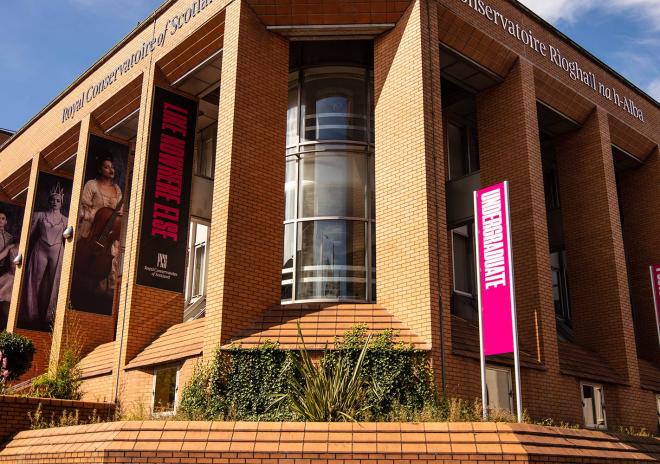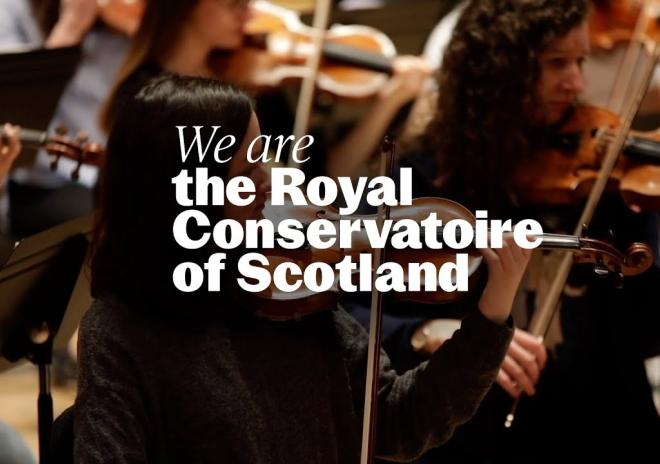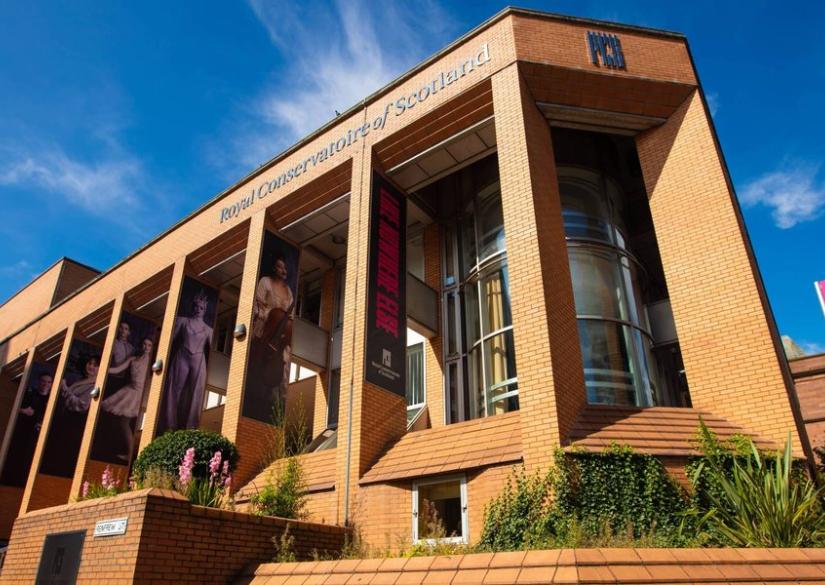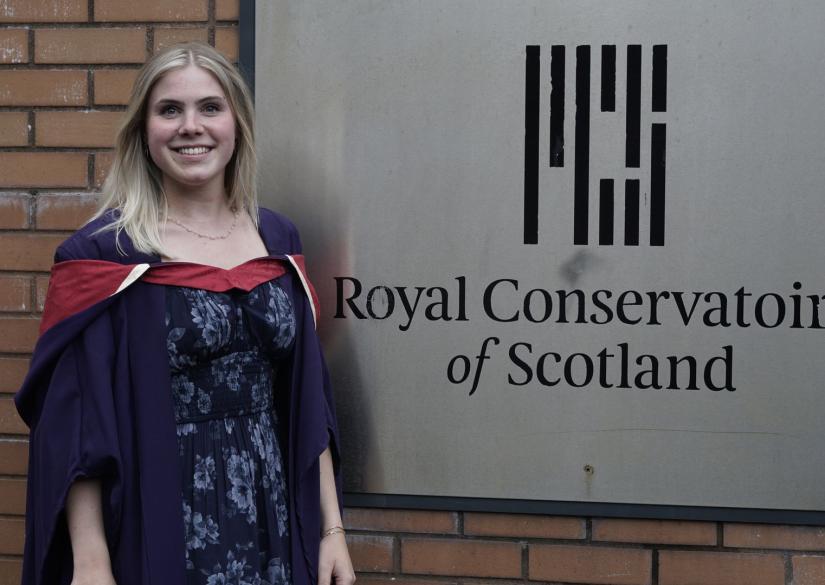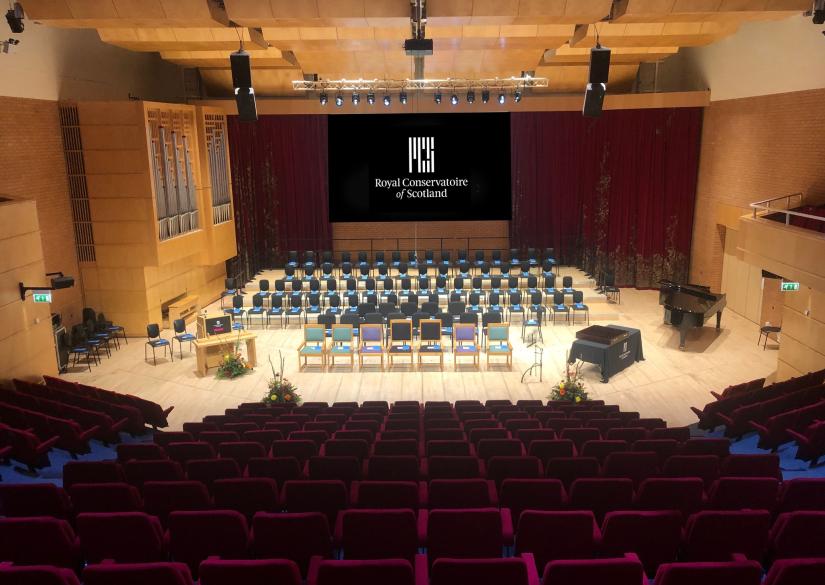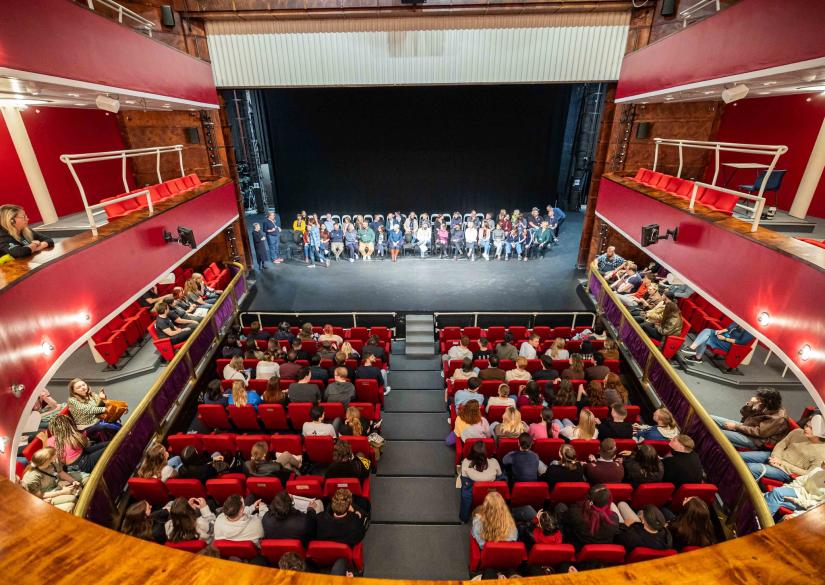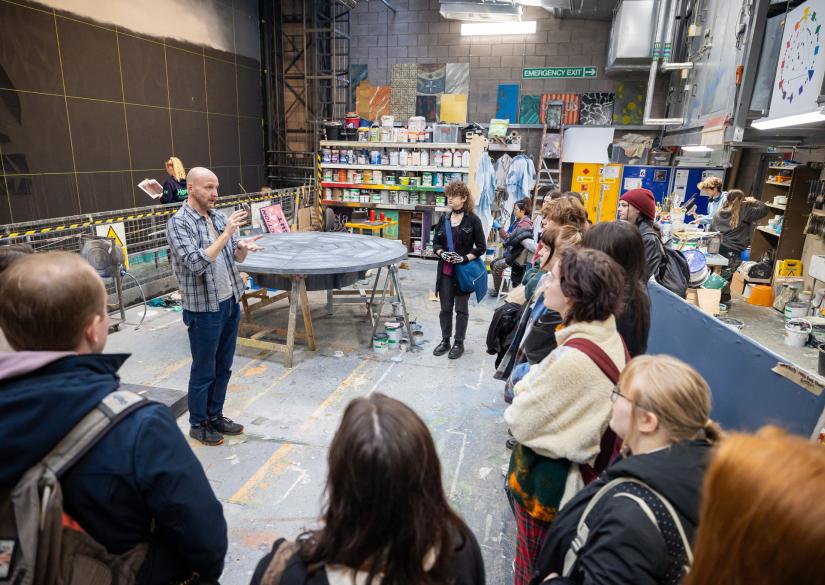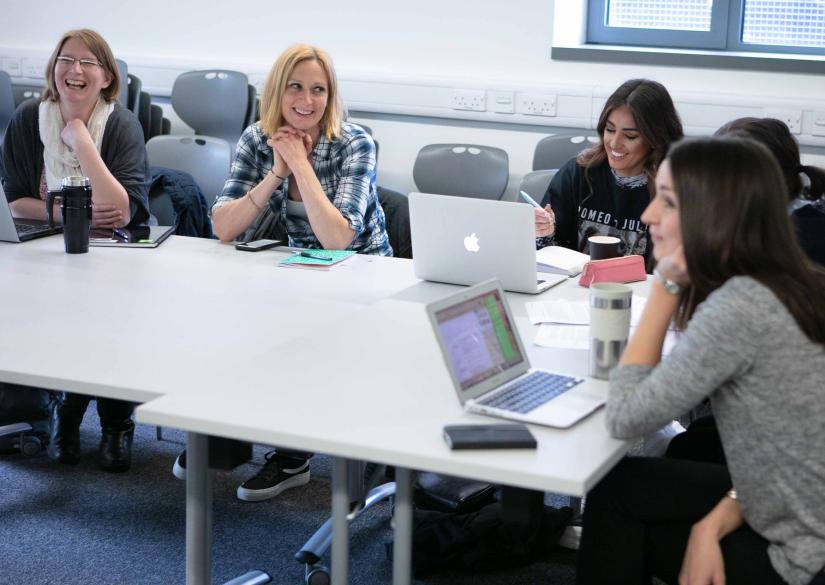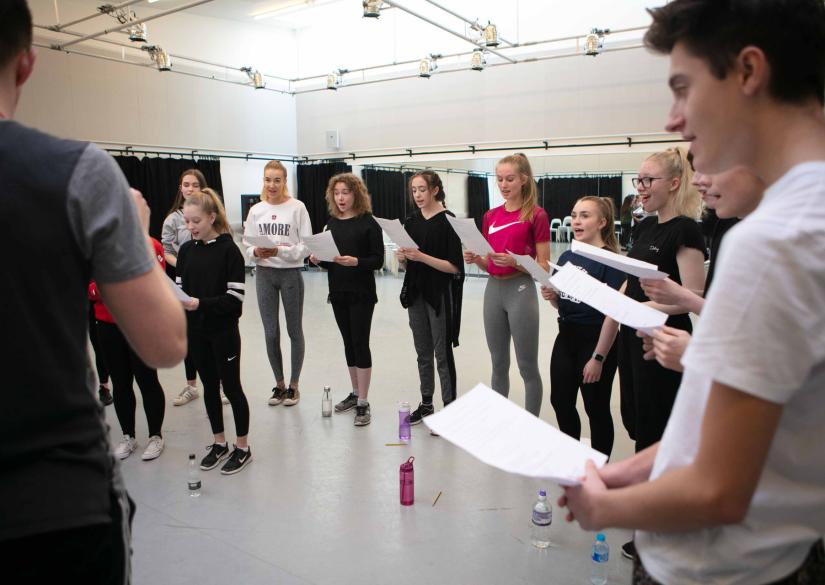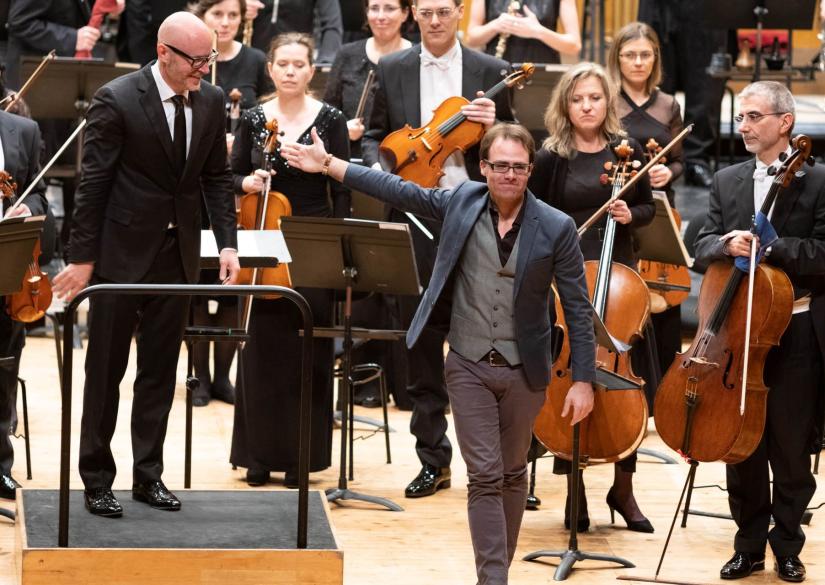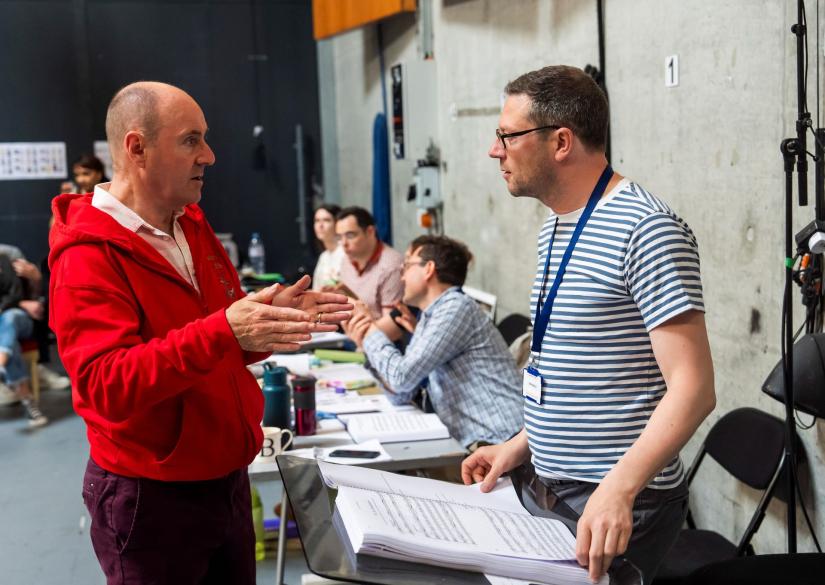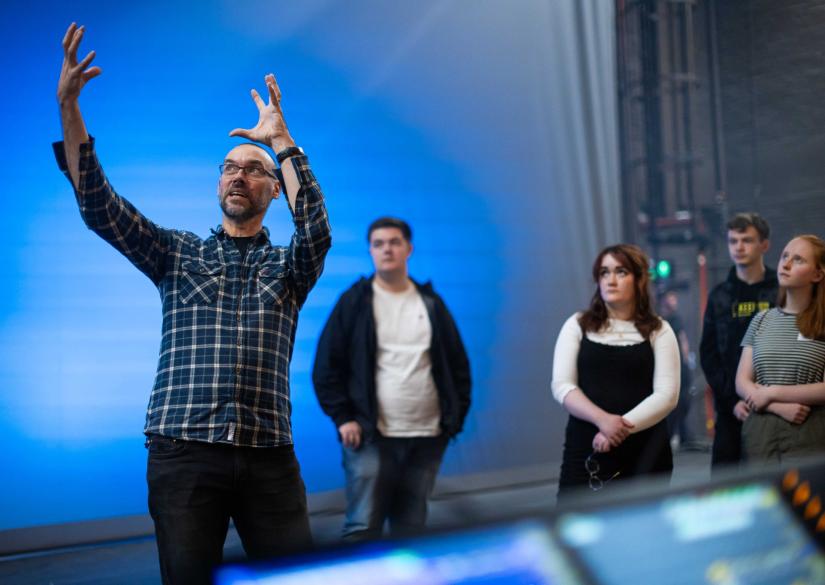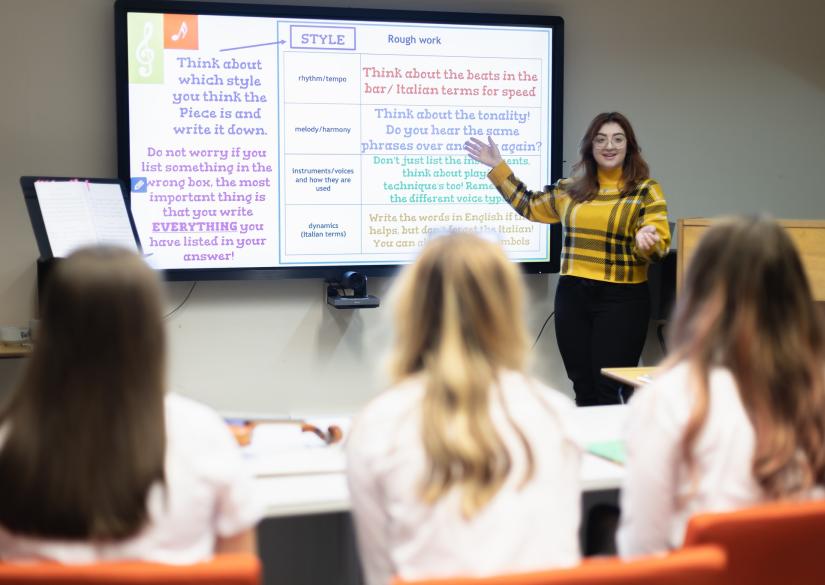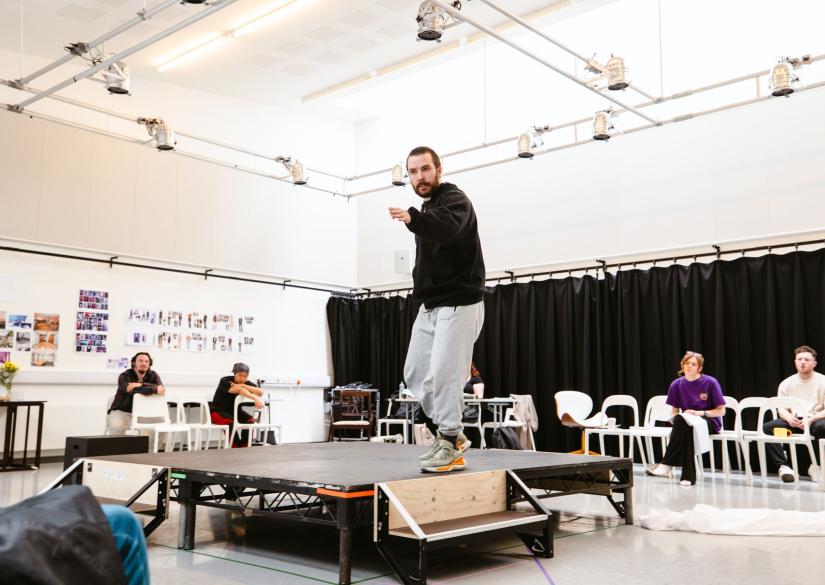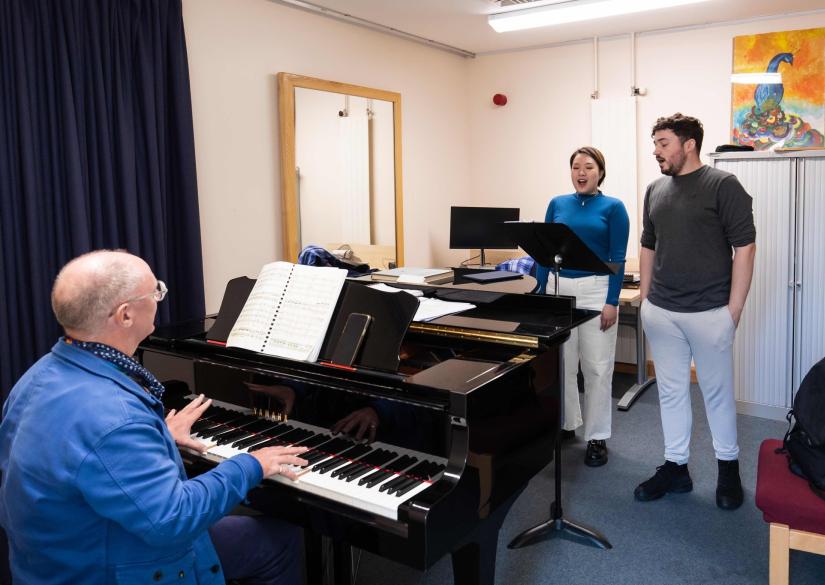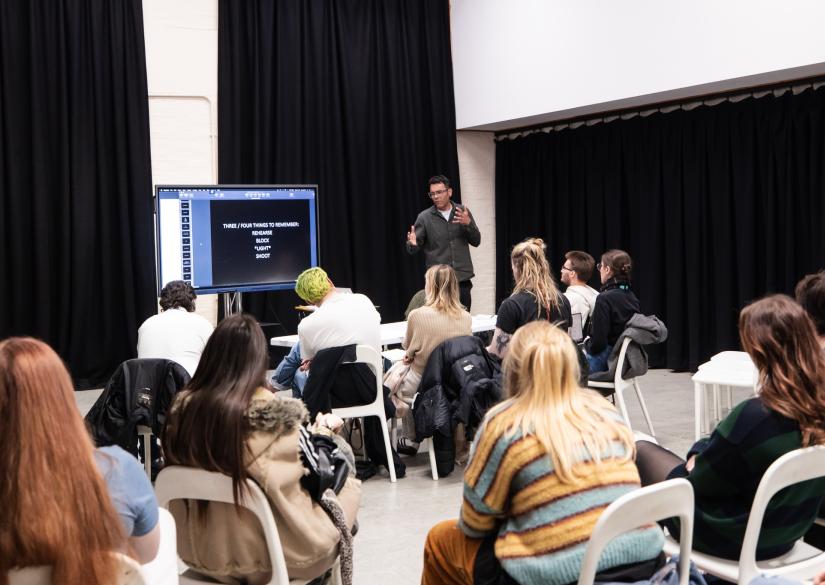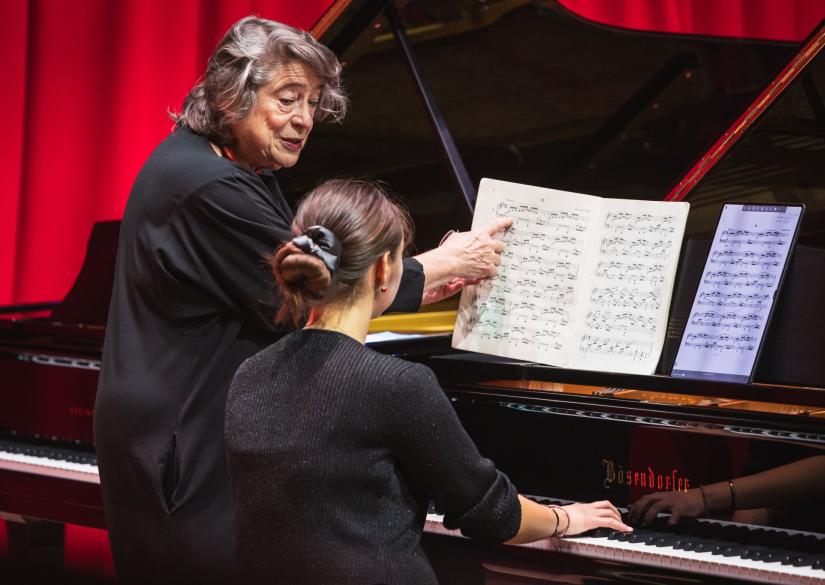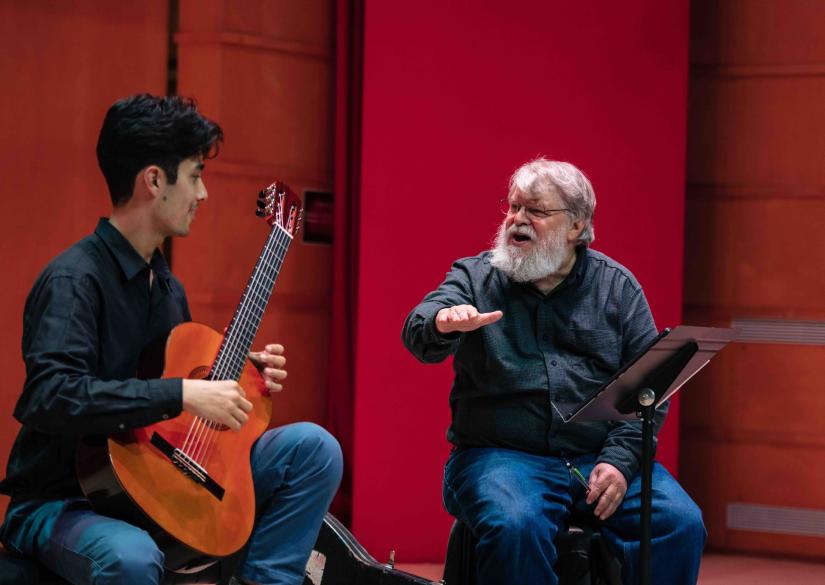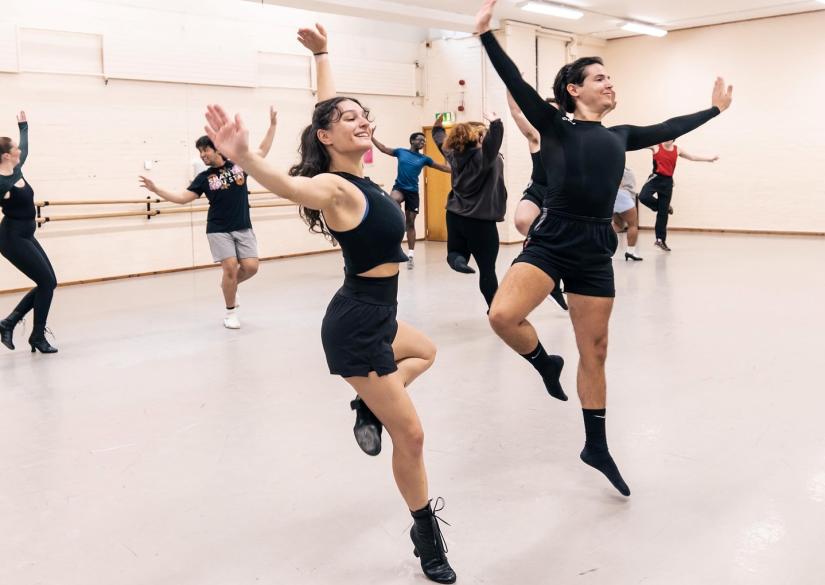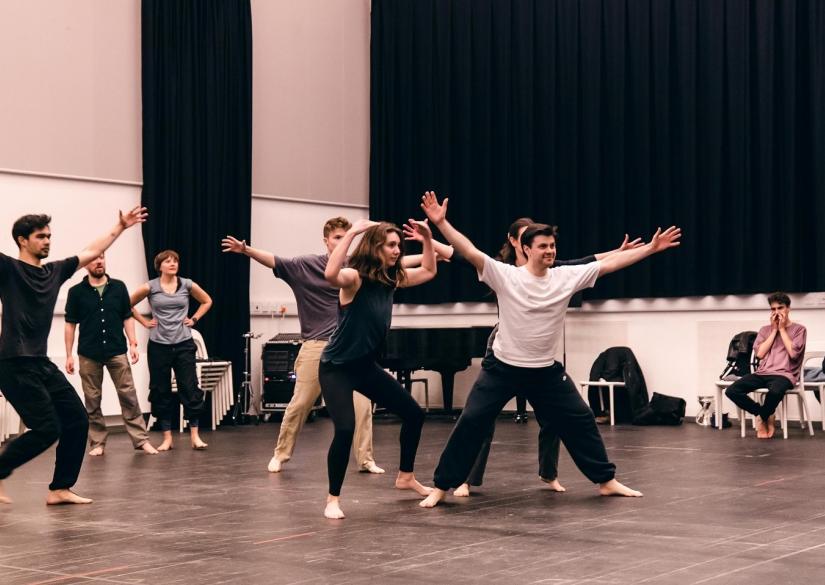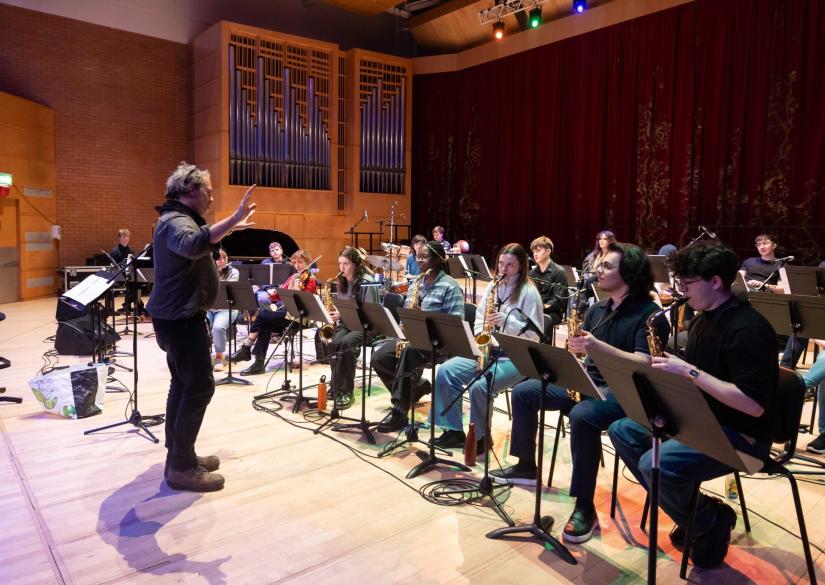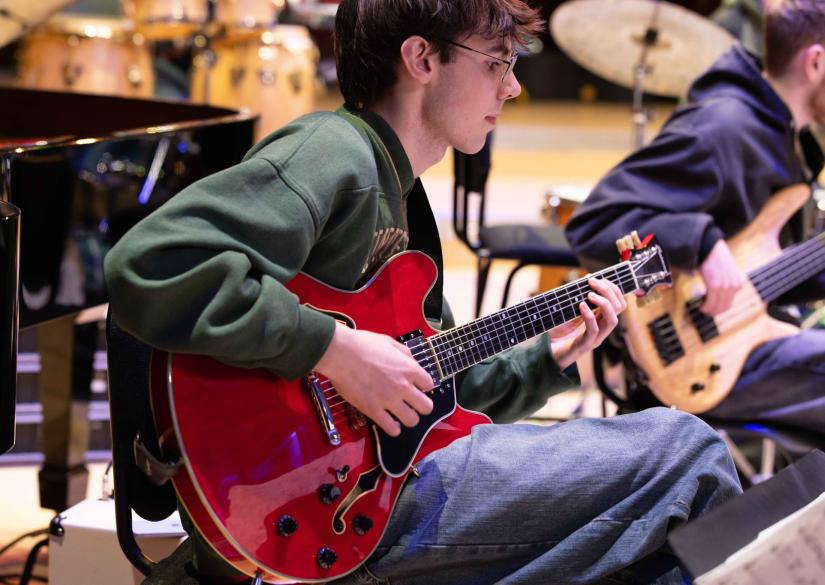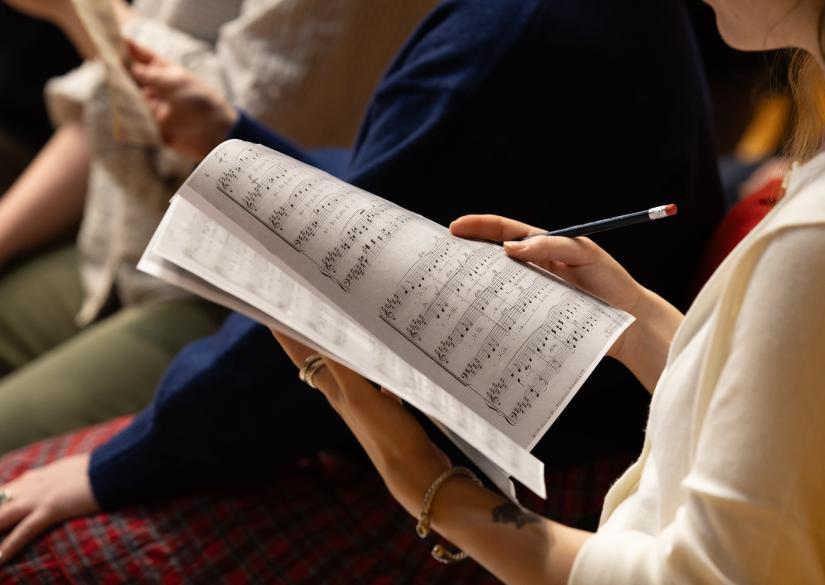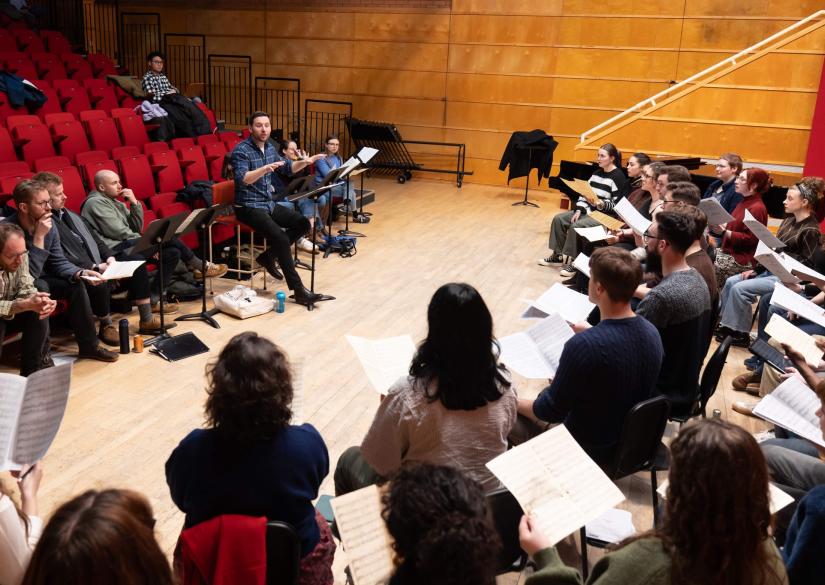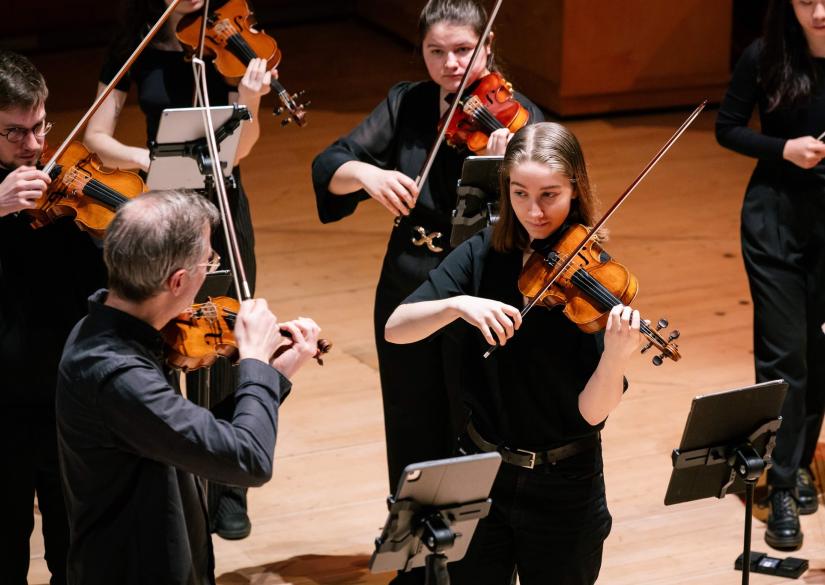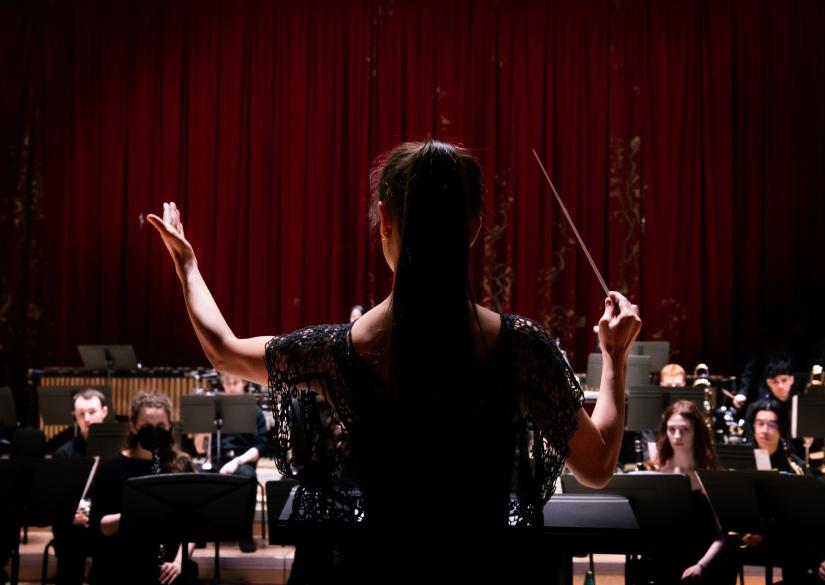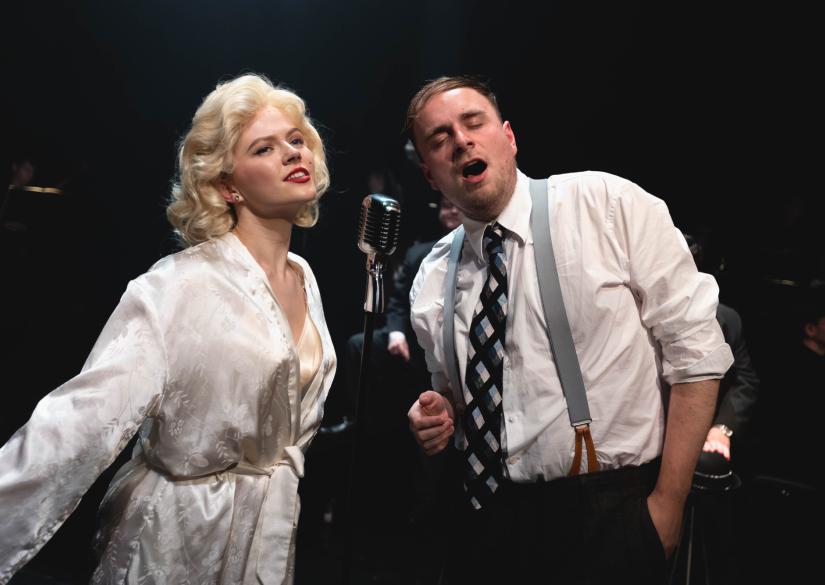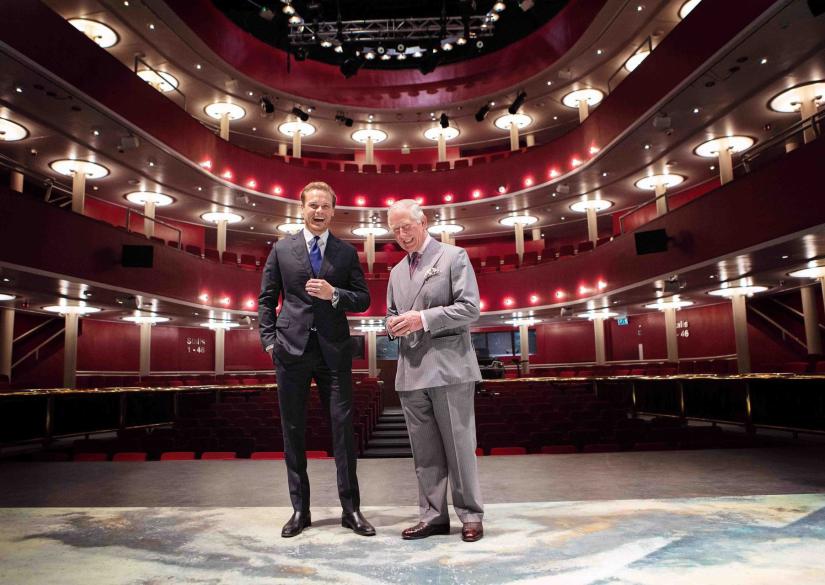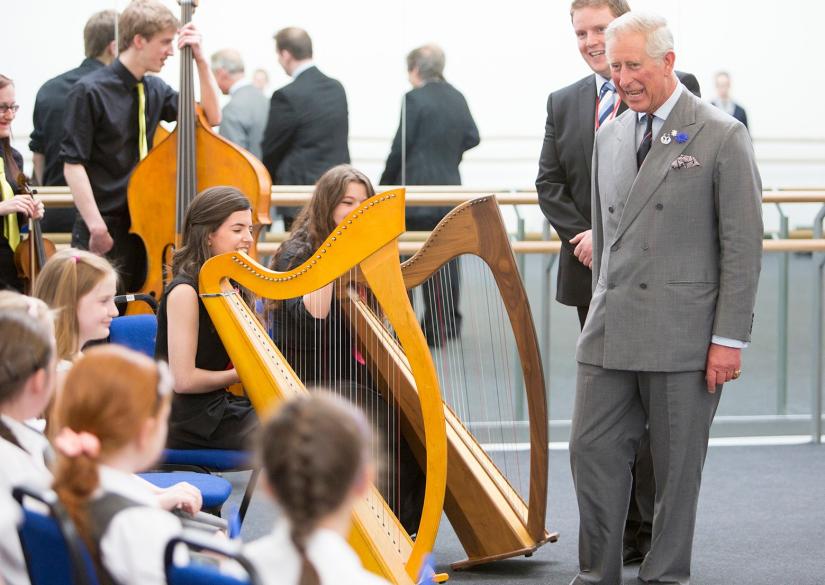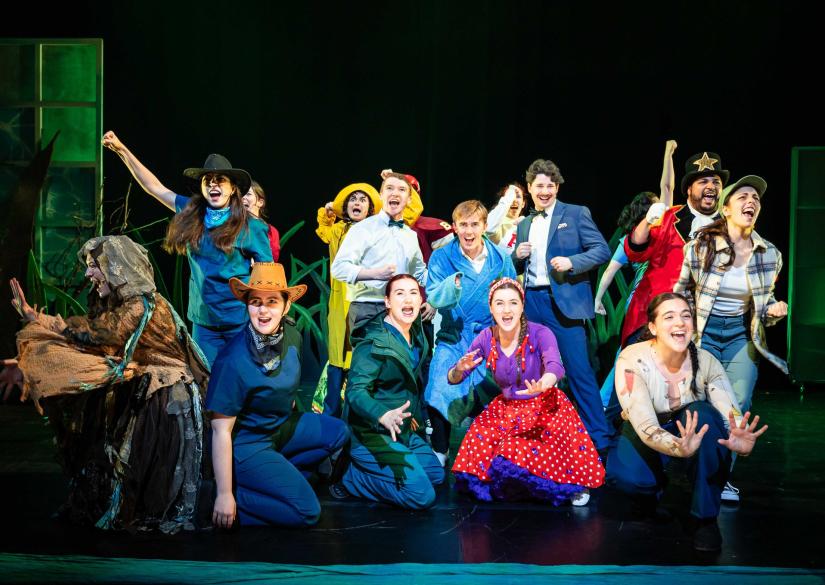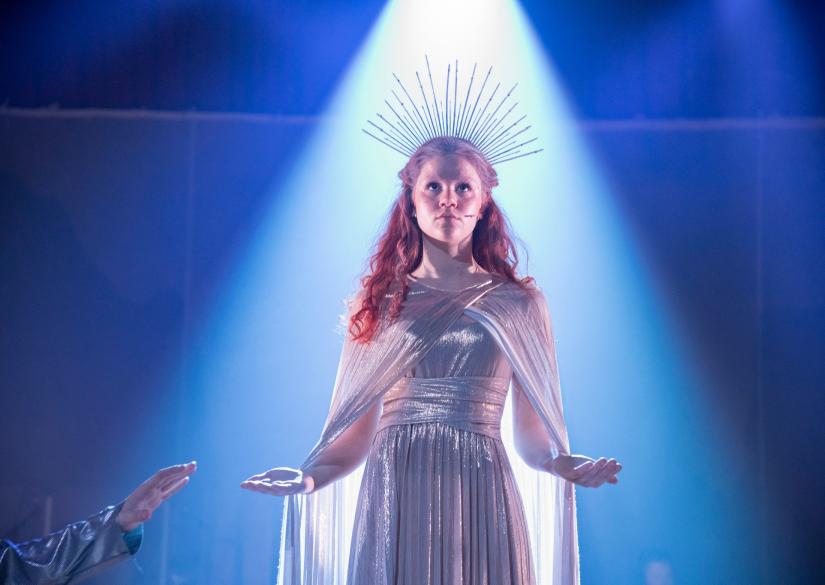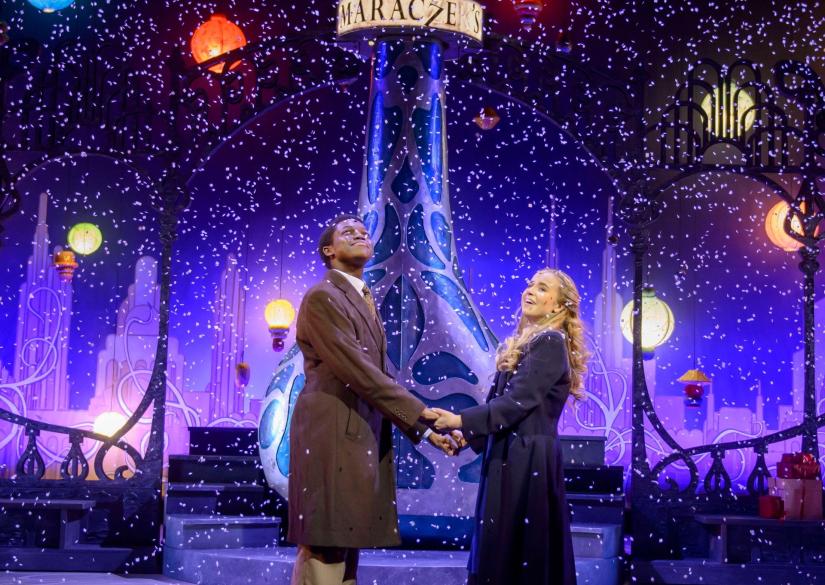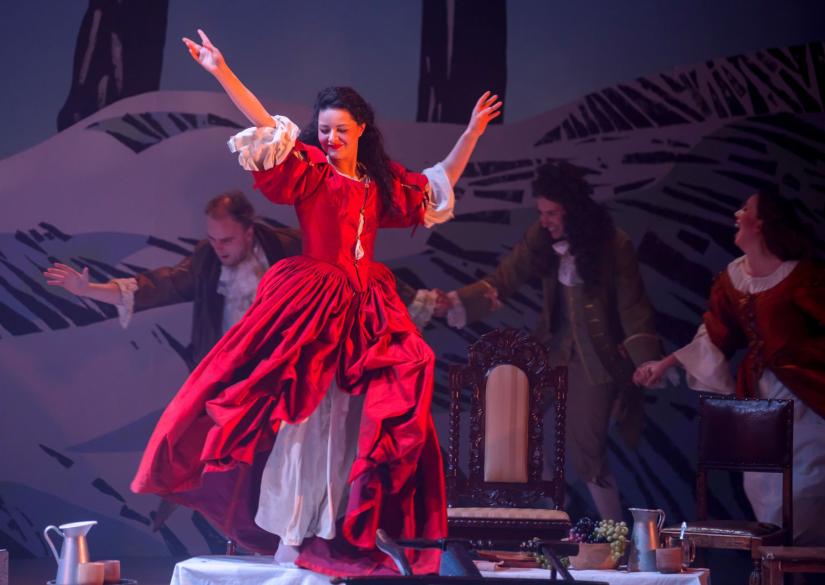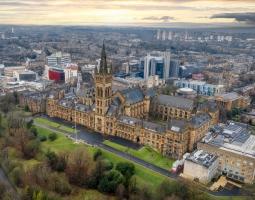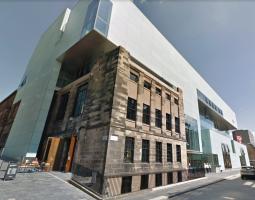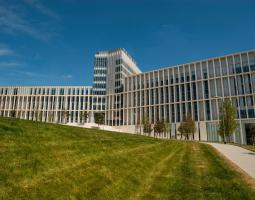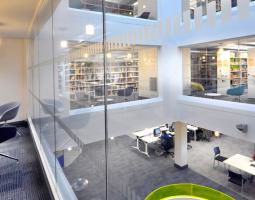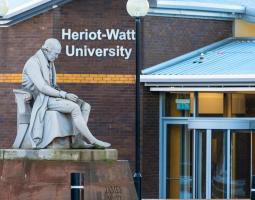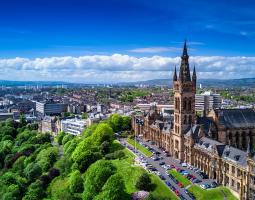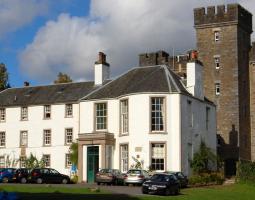Royal Conservatoire of Scotland
Programs and prices, tuition fees in Royal Conservatoire of Scotland
Undergraduate Programmes
- Age – from 18 years old,
- The term of study is three years.
Bachelor's programs are the first stage of higher education, which will provide students with basic knowledge in the chosen field, will allow them to acquire professional skills and understanding of further career activities.
Some of the in-demand specializations are:
- Contemporary ballet,
- Dance,
- Acting,
- Musical Theatre,
- Performance,
- Art, design,
- Production technologies, management,
- Filmmaking,
- Composition,
- Jazz,
- Management: wind instruments,
- Management: vocal performance,
- Traditional music,
- Pedagogical Sciences,
- Art in society.
The basis of each curriculum will be practice in specialized studios, workshops, educational halls. Under the guidance of qualified teachers, international students will study the theory of the chosen direction, gain applied skills, develop their talent through regular performances on campus and beyond.
Graduate Programmes
- Age – from 21 years old,
- The educational period is one to one and a half years.
The conservatory offers two options for qualifications at the master's level: a diploma and a standard degree. The duration of study will be 1-1.5 academic years with a total duration of four semesters.
Diploma programs are suitable for students who have previously studied in other specializations and do not have the basic knowledge and skills that they should have acquired at the bachelor's stage. Among the available destinations:
- Musical directing,
- Fine Arts,
- Opera performance,
- Music art.
Upon completion of one of these programs, students will be able to continue their academic path in a master's program or expand career opportunities in an existing specialty.
Standard Master of Science degrees are presented in the following areas:
- Musical Theatre: Musical Direction,
- Acting,
- Production: Design/Management,
- Leadership, fundraising,
- Creative practice of the arts,
- Accompaniment,
- Chamber music,
- Conducting,
- Jazz,
- Performance: Keys,
- Performance: timpani, percussion instruments,
- Performance: pedagogy,
- Psychology in Art,
- Traditional music,
- Piano for dance.
Upon successful completion of the curriculum, students will receive qualifications and the opportunity to continue their studies in doctoral studies.
Doctoral Programmes
- Age – from 23 years old,
- The term of study is three years.
The main goal of doctoral studies is to make an original contribution to knowledge. The programs do not follow the prescribed curriculum, however, students are always under the strict guidance of faculty, researchers, who support their individual research projects.
Through RCS's collaboration with the University of St. Andrews, doctoral degrees lead to PhD qualifications approved and awarded by the University of St. Andrews. Specific areas for degrees:
- Processes, methods of developing new performances (music/drama/musical theater),
- Performance,
- Musical compositions of all genres for live performance, electroacoustics and mixed media,
- Scottish music,
- Methods of advanced education of specialists, including the use of IT,
- Socio-cultural studies of productivity,
- Performing education, pedagogy.
During the three years of full-time study, students conduct research activities, on which they must submit a scientific dissertation, project or presentation at the end of the third year.
Youth Conservatory
- Age – from 3 to 18 years,
- The duration of education is one year.
RCS's three youth conservatories run programs for school-age children, each lasting three academic semesters. Depending on talents, wishes and goals, the student can choose one of the conservatories:
- Music,
- Dance,
- Drama, productions, cinema.
The programs presented in the youth departments will help the student learn the basic skills to begin a more professional development of their abilities.
The Conservatory of Music offers engaging curricula with weekly lessons, participation in ensembles led by qualified performers and teachers. It offers one-year courses such as:
- Music for early ages (from 3 to 7 years old),
- Primary instrumental program (grades 2-7),
- Main instrumental program: wind, brass and percussion instruments,
- Classical music,
- Traditional music,
- Jazz,
- Composition.
The Conservatory of Dance is a national center of excellence for aspiring dancers wishing to continue their studies on a full-time basis as part of higher education. Youth who attend Juniors Dance programs can expect an engaging, inspiring, and challenging curriculum led by experienced experts in their areas of specialization. Students will attend master classes from professionals, performances and will have the opportunity to perform, collaborate and meet like-minded people. The programs are open to young people from 11 to 18 years old, a Pre-Juniors Dance course is additionally available for students 4-7 years old. Direction:
- Contemporary ballet,
- Contemporary dance,
- Jazz dance technique.
The Conservatory of Drama, Film and Performances is open to students from 11 to 18 years old. Under the guidance of qualified teachers, international students will learn the intricacies of the chosen field, will be able to participate in activities with students of other specialties, create a portfolio and get the opportunity to continue their academic path at the higher education level in the future.
Short Courses
- Age – from 3 years old,
- The duration of education is up to a year.
The Royal Conservatoire of Scotland offers an extensive selection of weekly and weekend courses for children, young people and adults in music, dance, drama, production and film. There are classes for beginners or those who want to improve and develop existing skills. The Conservatory runs a number of short audition and interview preparation courses for those wishing to continue their studies in higher education, conducts courses with a credit rating, developed in accordance with the Scottish Credit and Qualifications Framework (SCQF):
- Children from three years old, young people – weekly classes throughout the year, every Saturday from September to June,
- Adults from 18 years old – weekly classes throughout the year from September to June or 10-week classes for 1-3 semesters,
- Short-term courses, preparation for auditions - intensive classes that take place during the weekend.
Summer School
- Age – from 5 to 17 years old,
- Dates – June-August,
- The duration of educational course is from one week.
The Summer School, established at RCS, offers short-term programs for students from 5 to 17 years old. For 1-2 weeks, children will attend face-to-face classes in the chosen direction:
- Musical Theatre,
- Drama art,
- Acting,
- Contemporary ballet,
- Introduction to the design of scenery, costumes,
- Stage production,
- Filmmaking,
- Composition,
- Harp,
- Classical guitar,
- Piano,
- Accordion,
- Jazz,
- String instruments,
- Saxophone.
All classes are taught by qualified professionals, under whose guidance children will master basic knowledge and skills, and will be able to realize their talent in a supportive, friendly environment. Lessons are conducted in small groups, teachers pay individual attention to each pupil. Studying on the RCS campus, children will be able to feel like students of the conservatory and consolidate their goals, ambitions and wishes for further academic path.
Description of Royal Conservatoire of Scotland
- Location: Glasgow, Scotland,
- Founded in: 1847,
- Number of students: about 1270,
- Language of instruction: English,
- Type of education: mixed
The Royal Conservatoire of Scotland (RCS) is the only conservatory in Europe to offer higher education degrees in all types of performing arts on a single campus. The institution is a member of the Federation of Drama Schools.
Founded in 1847 by Charles Dickens as the Glasgow Athenaeum, for the first 39 years the conservatory offered only musical education. In 1944, the institution received international status and royal recognition given by King George VI. RCS received its current name in 2011, marking the replenishment of the variety of academic programs and historical affiliation with royal institutions. Today, the patron of the Royal Conservatoire of Scotland is His Majesty King Charles III, former Duke of Rothesay.
On the only campus located in Glasgow, students can pursue one of the higher education degrees, take short educational courses, study at a summer school or in the youth department of the conservatory. Higher education at RCS is presented at all its stages: bachelor's, master's, doctoral studies. The teaching staff, most of whose representatives have the highest qualifications and personal achievements in research activities, not only provides international students with a modern understanding of the chosen scientific field, but also supports each student individually.
The student community, represented by more than 55 different nationalities, creates a supportive, friendly atmosphere. Students from different faculties interact with each other during extracurricular activities, in research and project activities, diversifying their curricula, broadening their horizons and making new friends. Comprehensive support provided by both teaching and administrative staff helps students realize their talent and abilities, gain self-confidence and build a successful career.
Educational process
The Royal Conservatoire of Scotland offers not only modern programs in several areas of art, but also comprehensive support throughout the entire educational process.Foreign students are given the opportunity to showcase their talent and fulfil their potential in front of leading industry professionals at external events in Scotland and beyond. Thanks to the exchange program, students have access to study at partner universities and perform at venues in the USA, UK, Europe and the Middle East, which allows them to expand their career prospects and earn recognition even before completing their studies.
Faculties and colleges
RCS offers programs in several faculties:
- Dancing,
- Drama,
- Production,
- Film art,
- Music,
- Education,
- Socially active practice.
In addition to higher education programs, here you can get the qualification of a youth conservatory, take short-term courses in a summer school.
Scientific achievements
Research at RCS is aimed at developing innovative directions for art forms, at a modern view of processes and practices, at their role in the economy, culture and ecology. All projects are characterized by two I's – interdisciplinarity and impact – which manifest themselves across the spectrum of work and underpin world-leading and internationally excellent research. The conservatory's research staff achieves high results, which include new works of art and performances, exhibitions, recordings, and writing.
There are two main areas of RCS research activities:
- Artistic research (practical research or research in art, through art),
- Performing arts in society.
Accommodation, meals, prices
Most RCS students are accommodated in Base Glasgow, a residence specially built for students of the conservatory. It is a five-minute walk from the academic buildings, near public transport stops and a variety of urban infrastructure: entertainment centers, restaurants and cafes, attractions. Base Glasgow offers several types of single rooms:
- Bedroom with private bathroom and access to shared living room, kitchen,
- Studio with private bathroom, kitchenette with necessary appliances, dining area,
- Studio for people with disabilities,
- A premium studio with a larger area, a bathroom, a kitchen and a dining area.
The building has prepared social areas for socializing with friends, including a huge space with TV, table tennis, football and billiards, a cinema room, a roof terrace. Residents also have access to a free gym on site, many places for study and rehearsals with dedicated project rooms, several music halls and dance studios - all rooms are soundproofed and have professional equipment.
Activities Royal Conservatoire of Scotland
Most of the events and activities of thematic communities are organized under the leadership of the Student Union. Its representatives are students of different specialties and ages, who are gathered in order to introduce the general opinion of students to the leadership of the conservatory, to help first-year students adapt and make student life rich and diverse.
The main extracurricular activities at RCS are thematic communities - groups of like-minded people united by the same hobby, passion or goal. The list of active societies is extensive, but if a student cannot find a suitable community among them, he can create his own:
- Lovers of improvisation,
- Asian Association,
- Board games,
- Christian Union,
- Hiking,
- Meditation,
- Running Club,
- Yoga and much more.
Many pupils devote their free time to honing their skills in the specialization they are studying. The conservatory offers a variety of options for internships, from using academic facilities outside of school hours to participating in external events. Throughout the year, the RCS campus hosts music concerts, theatrical performances, theme nights, seminars and workshops; They can be conducted by both teachers of the institution or its students, and invited specialists.
Advantages
- No5 in the QS World Ranking of the Best Performing Arts Schools,
- RCS teachers are more than 1000 lecturers, professors, artists, performers, many of whom are still active professionals in their field. Some teachers have such awards as "Music Teacher of the Year", "Gramophone Award", "BBC Music Magazine Award", "Jazz Teacher of the Year" and "British Composer Award".
- World-famous performers are regularly invited to the campus: Nicola Benedetti, Jed Mercurio, Jessica Cottis,
- Collaboration with national music organisations, including the Scottish Ballet, Scottish Opera, BBC Scottish Symphony Orchestra and others,
- Around one in three of the students originally came from outside the UK, together the student community represents more than 55 nationalities,
- The only arts institution in Europe that teaches all performing arts specializations on a single campus,
- Excellent conditions for obtaining specialized skills created on the educational territory in Glasgow,
- Regular participation in performances, thanks to which students gain professional skills, get acquainted with specialists in their field,
- A community of outstanding alumni who have built careers in different countries around the world.
Facilities and equipment at Royal Conservatoire of Scotland
The RCS campus is located in Glasgow, Scotland. The city has excellent transport links, including buses, trains and the underground, giving students the opportunity to see many attractions both in Scotland and beyond.
The Royal Conservatory has two main buildings on the same campus. The infrastructure is represented by:
- Stevenson Hall is the main concert venue of the conservatory, seats 355 people and is equipped with a full set of lighting equipment and a high-quality sound system. The hall is finished with natural wood, it has a full-tube organ,
- The New Athenaeum Theater is the main theater venue, seating 344 spectators and equipped with the original Stage Technologies flying system, a portable Kinesys system that can be used anywhere. Next to the theater there is a docking station for the stage and technical warehouses, which house a number of industry-standard lighting and sound equipment,
- The Ledger Recital Room features a bright, open design with sycamore panels and a minstrel gallery. This concert hall can accommodate up to 108 people and is the venue for many seminars and workshops, Blue Monday jazz concerts. Fantastic acoustics and the possibility of choosing between natural and artificial light make the Ledger Recital Room the ideal venue for performances,
- Chandler's Studio Theater is a multi-purpose space that can accommodate up to 125 people in various areas. It is a black box studio that is used in most production programs, including acting, musical theater, reading classical and modern texts. In addition to staging plays, musicals and small operas, Chandler's Theatre is also ideal for technical training sessions,
- The Alexander Gibson Opera School studio was built in 1998 and has a capacity of 147 people. This high-specification studio has full production lighting and an advanced sound system, used by the Opera School for rehearsals and development workshops,
- Three recording studios, a dedicated jazz studio and three electroacoustic studios. The Conservatory has invested in a high-quality multi-camera video recording and streaming system at two concert venues, allowing for live, visual recording of concerts and competitions. The state-of-the-art recording studio consists of a huge 70-square-meter hall, a vocal booth and a separate control room, with all rooms connected by video and two-way communication, equipped with a full-size Steinway concert grand piano,
- 20 rehearsal rooms for dramatic performances,
- Several ballet studios,
- 90 individual rehearsal areas,
- IT equipment in computer rooms,
- The Whittaker Library, containing one of the most comprehensive collections of performance material for music, dance, drama, production and film in the UK and abroad,
- Design studios, workshops, prop rooms, costume and technical rooms.
For relaxation and communication with friends, social areas with board games and open spaces have been created on campus.
Admission dates and extra charges
Basically, higher education programs take place over three semesters, but some of them last 4 semesters:
- Autumn: September-December,
- Spring: January-March,
- Summer: April-June,
- Additional summer: June-September.
Academic classes and extracurricular activities are organized on weekdays: Monday to Friday. Rest is provided on weekends, days of international and national holidays, during the seasonal holidays between semesters.
Approximate list of additional costs is represented by:
- Registration fee, deposit,
- Accommodation, meals,
- Individual materials, tools and books for studying,
- Individual lessons not included in the curriculum,
- Some extracurricular activities, including contributions to student societies,
- Rental of tools, equipment on request,
- External events,
- Personal expenses.
Enrolment process
The RCS admission process consists of several steps:
- Filling out the online form, providing the required documents,
- Payment of the registration fee,
- Passing interviews, auditions,
- Receiving an official invitation to enroll,
- Making a deposit to book a place on the course,
- Arrive on campus to begin your studies.
Perspectives
Graduates of the Royal Conservatoire of Scotland are Hollywood stars, cultural leaders and specialists in many fields of art, they can be seen on the screens of cinemas and TVs, in concert halls and classrooms as teachers. The global alumni community brings together more than 5000 artists, practitioners and educators, including such prominent personalities as Nkuti Gatwa, Karen Cargill, Sam Heughan, Christy Wilson-Kearns, Catriona Morison, David Tennant, Patrick Doyle, James McAvoy, Richard Madden, Fergus McCready, Alan Cumming, Sean Shibe and Jack Lowden.
Entry requirements, how to apply, what is required to enrol
The most important aspect of admitting new students is audition, however, all applicants must provide the following documents before it:
- Personal documents: passport, health insurance, student visa or residence permit,
- Academic certificates from the previous place of study: certificate of complete secondary education and certificate of preparatory course / bachelor's diploma / master's diploma in a related specialization,
- Report card, official transcripts,
- IELTS, TOEFL, PTE Academic or other conservatory-recognized language test results. Applicants need a level of at least B2 in a Recognized Competence,
- Resume with practical experience, if any,
- An introductory essay describing your skills, goals, and an explanation of your desire to study at The Royal Conservatoire of Scotland.
All documents must be translated into English.
Scholarships Royal Conservatoire of Scotland
Every year, the educational institution allocates about 1.5 million pounds in the form of scholarships to incoming and continuing undergraduate and graduate students from Scotland, other countries on the basis of their merit and financial need. International students can apply for one of the following funding programs:
- Chevening Scholarships,
- Commonwealth Scholarships,
- Scholarships for freshmen who have successfully auditioned,
- A financial program to support students from large families or with low income and those who are in a difficult life situation.
Students also have access to external funding options: federal grants, awards from partner organizations.
Institution on the map
Residence permits, citizenship and other services
- Guardianship services during the studies
- Student supervision
Review about Royal Conservatoire of Scotland
Recommendations on when to apply
| Language courses, schools and children's language camps | Primary and secondary education - private schools | Preparation programmes for entering universities - higher education | Higher education (after completing accredited programs A-level, IB, High School) - Bachelor, Master, MBA |
| - we recommend to apply 6-9 months before the start of the course (some camps and schools offer discounts for early booking or for lengthy study programs) - there are some very popular and high demand children's camps, where the applications need to be submitted 1 year in advance (in particular Switzerland , Great Britain , USA , Canada , Austria) | - we recommend to apply one year before the start of the training program, - some schools have a specific time frame (September-November - please specify an individual school) - some schools require tests in several stages (UKISET, internal tests of the school: English, mathematics, logics, subjects, interview, some require a personal visit) | - we recommend to apply one year before the start of the program, - for Foundation and Pathway programs, IELTS and TOEFL certificates are usually required, respectively | - recommended submission one year before the start of the program, - the deadline normally closes in January, for TOP HEIs and, as a rule, in March in other universities - for a bachelor, a Foundation or Pathway preparatory program a completed A-level, IB, High School + IELTS / TOEFL are required - for Masters you need a graduated higher education, in some cases you need a pre-Masters program - MBA requires completed higher education, work experience preferably at least 2-3 years, etc. |


